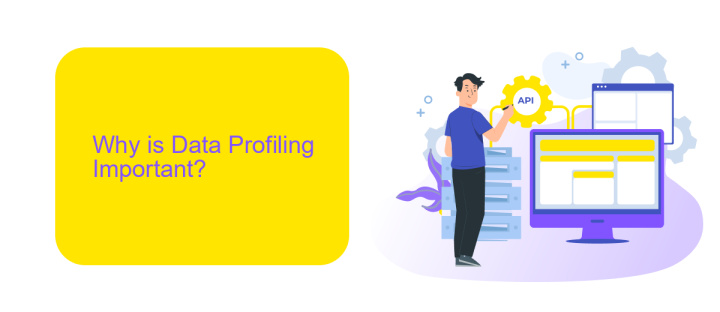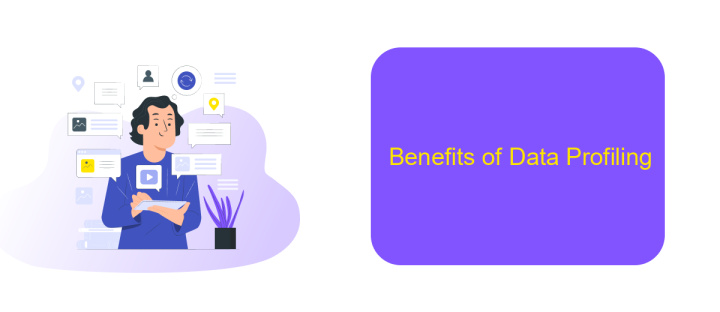What is Data Profiling in ETL
Data profiling is a critical step in the ETL (Extract, Transform, Load) process that involves analyzing and understanding data sources to ensure data quality and integrity. By examining the structure, content, and relationships within the data, data profiling helps identify anomalies, inconsistencies, and potential issues early on, facilitating more efficient and accurate data integration and analysis.
What is Data Profiling?
Data profiling is a crucial process in the realm of ETL (Extract, Transform, Load) that involves analyzing and understanding the structure, content, and quality of data within a database. This process helps organizations ensure data accuracy, consistency, and completeness, which are essential for making informed business decisions.
- Identifying data patterns and anomalies
- Assessing data quality and consistency
- Validating data against predefined standards
- Detecting and handling missing or incomplete data
By conducting data profiling, organizations can uncover insights about their data, which in turn aids in optimizing ETL processes. Tools and services like ApiX-Drive can facilitate seamless integration and automation of data profiling tasks, ensuring that data from multiple sources is accurately and efficiently processed. This not only saves time but also enhances the reliability of the data used in analytics and reporting.
Why is Data Profiling Important?

Data profiling is crucial in ETL processes as it helps ensure data quality and consistency. By analyzing the data before it is moved into the target system, organizations can identify and rectify potential issues such as missing values, duplicates, and incorrect formats. This preliminary analysis not only saves time but also reduces the risk of errors that could compromise the integrity of the data, leading to more reliable and accurate insights for decision-making.
Moreover, data profiling aids in better understanding the data landscape, which is essential for effective data integration. Tools like ApiX-Drive can streamline this process by automating data profiling and integration tasks, making it easier to connect various data sources. This seamless integration ensures that data is consistently monitored and maintained, allowing organizations to focus on leveraging their data for strategic initiatives rather than getting bogged down by data quality issues.
How Data Profiling Works

Data profiling in ETL (Extract, Transform, Load) is a crucial step that ensures the quality and integrity of data before it is loaded into the target system. It involves analyzing the source data to understand its structure, content, and quality. This helps in identifying any anomalies, inconsistencies, or missing values that need to be addressed to ensure accurate data integration.
- Data Collection: Gather data from various sources, such as databases, flat files, or cloud storage.
- Data Analysis: Use statistical methods and algorithms to examine the data for patterns, distributions, and relationships.
- Data Quality Assessment: Identify and document data quality issues such as duplicates, missing values, and inconsistencies.
- Data Cleansing: Apply necessary transformations to correct data quality issues.
- Data Validation: Verify that the data meets the required standards and is ready for loading into the target system.
Tools like ApiX-Drive can streamline the data profiling process by automating the integration and data collection from various sources. This ensures that the data is accurately profiled and any issues are promptly addressed, ultimately leading to more reliable and high-quality data for business analytics and decision-making.
Benefits of Data Profiling

Data profiling in ETL (Extract, Transform, Load) processes offers numerous advantages that significantly enhance data quality and operational efficiency. By examining data from different sources, it ensures that the data is accurate, consistent, and complete before it is loaded into the target system.
One of the primary benefits of data profiling is the ability to identify data anomalies and inconsistencies early in the ETL process. This proactive approach helps in preventing potential issues that could arise later, saving time and resources in data cleaning and correction.
- Improved data quality and accuracy
- Enhanced decision-making capabilities
- Increased operational efficiency
- Early detection of data issues
- Better compliance with data governance policies
Furthermore, data profiling facilitates better integration of data from multiple sources. Tools like ApiX-Drive can be particularly useful in this context, as they streamline the integration process, ensuring seamless data flow and reducing the complexity involved in managing different data sources. This ultimately leads to more reliable and actionable insights, empowering businesses to make informed decisions.
- Automate the work of an online store or landing
- Empower through integration
- Don't spend money on programmers and integrators
- Save time by automating routine tasks
Challenges of Data Profiling
Data profiling in ETL presents several challenges that can impact the accuracy and efficiency of data integration processes. One significant challenge is ensuring data quality, as inconsistent, incomplete, or erroneous data can lead to inaccurate analysis and decision-making. Identifying and rectifying these issues requires robust validation mechanisms and often manual intervention, which can be time-consuming and resource-intensive. Additionally, handling large volumes of data from diverse sources adds complexity to the profiling process, necessitating advanced tools and techniques to manage and analyze the data effectively.
Another challenge lies in integrating various data sources, each with its unique structure and format. This requires sophisticated mapping and transformation capabilities to ensure seamless data flow. Tools like ApiX-Drive can simplify this process by providing automated integration and data synchronization services, reducing the manual effort involved. However, even with such tools, ensuring data consistency and integrity across all sources remains a persistent challenge. Moreover, maintaining data privacy and compliance with regulatory standards adds another layer of complexity, requiring constant monitoring and updating of data profiling practices.
FAQ
What is Data Profiling in ETL?
Why is Data Profiling important in ETL processes?
What are the common techniques used in Data Profiling?
How can I automate Data Profiling in my ETL process?
What are the benefits of using automated Data Profiling tools?
Time is the most valuable resource in today's business realities. By eliminating the routine from work processes, you will get more opportunities to implement the most daring plans and ideas. Choose – you can continue to waste time, money and nerves on inefficient solutions, or you can use ApiX-Drive, automating work processes and achieving results with minimal investment of money, effort and human resources.


